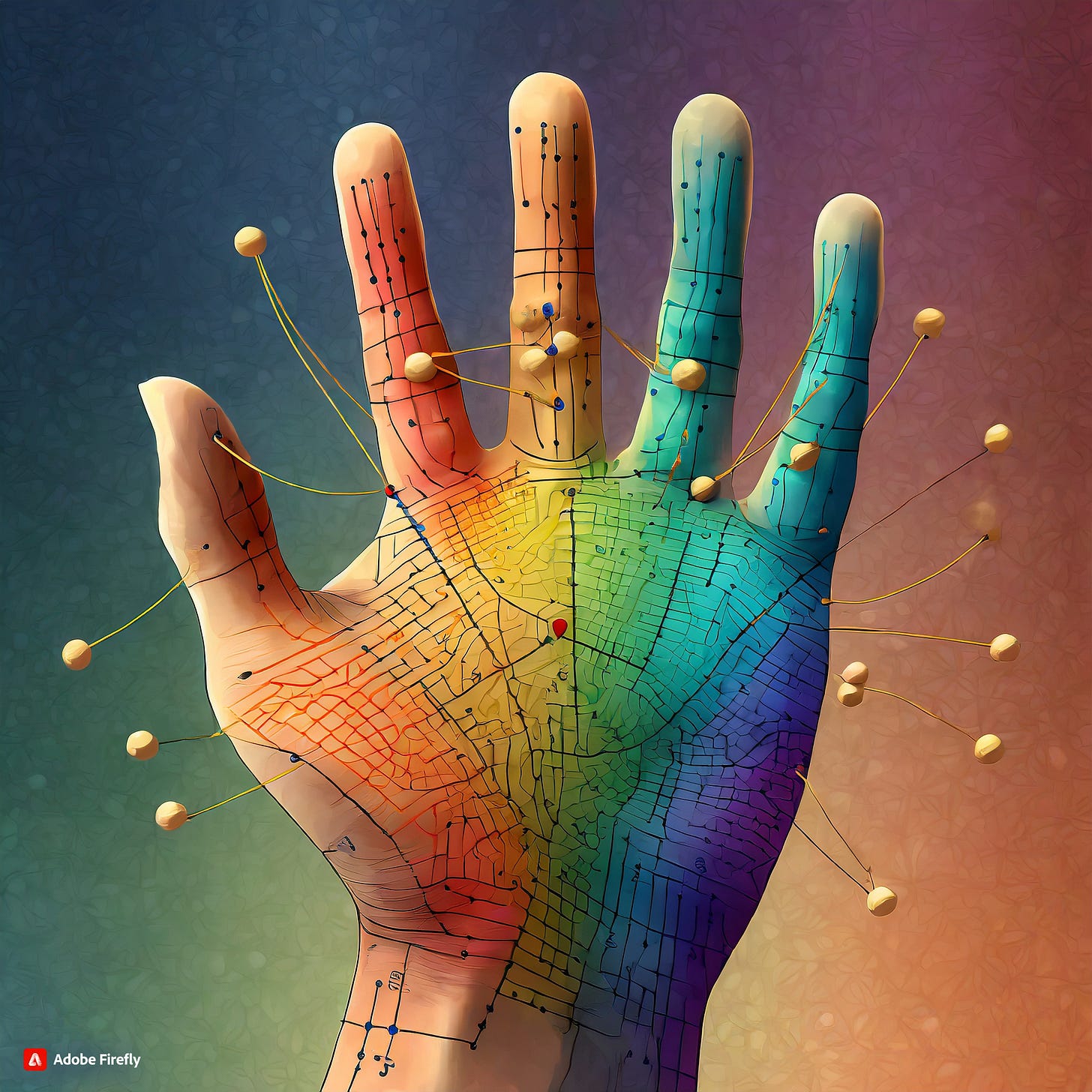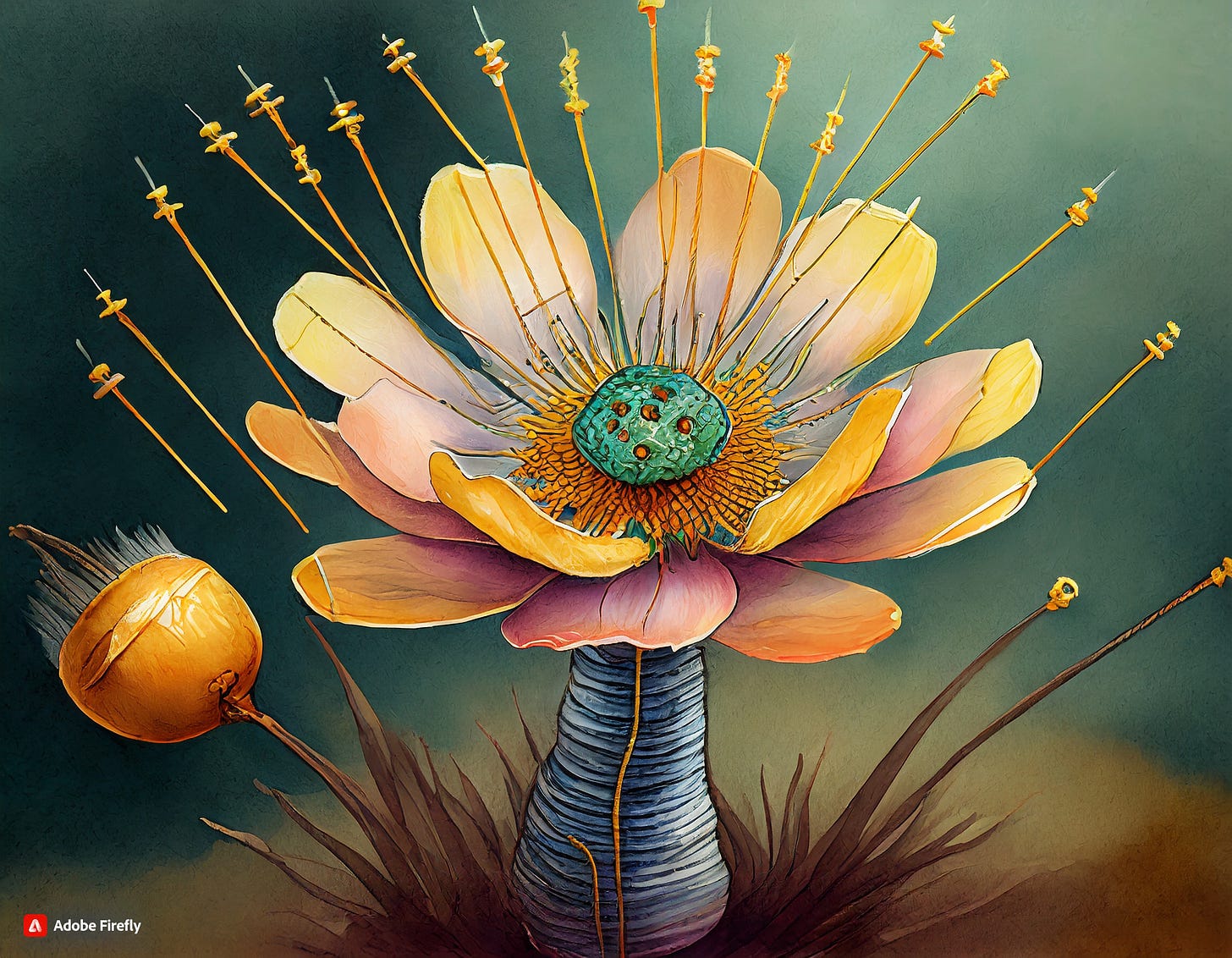As you’ve probably gathered from prior posts, a lot of what we’re trying to teach future community acupuncturists is mindset. There’s the mindset of a practitioner in a low-cost, high-volume practice, otherwise known as being good with people. There’s the mindset of a small business person/entrepreneur, otherwise known as being responsible for a social container. In both cases, a helpful mindset includes being practical, being resilient, being kind to yourself and learning from your mistakes. Practicing acupuncture requires learning to tolerate uncertainty and navigate without a map sometimes.
Also, you can’t be haughty or finicky. Being a community acupuncturist in particular is a hard job. If somebody walks up to you and hands you a tool that can help you do your job, say thank you!
Let’s talk about the placebo effect -- and why a student’s or practitioner’s attitude towards the placebo effect is a litmus test for mindset. In the larger acupuncture profession, typically what you hear is “Acupuncture is not a placebo!” with practitioners generally treating the idea of placebo as an obstacle to acupuncture’s legitimacy. Having watched a lot of people struggle with their acupuncture practices, I’ve noticed that some acupuncturists get stuck (no pun intended) on legitimizing their practice as opposed to just rolling up their sleeves and, you know, practicing. Those are very different kinds of effort. Unfortunately the former can really suck the life out of the latter, and that’s not what we want for our students.
Placebo is weirder and more expansive than we thought — in a good way. There have been a couple of interesting articles recently: an opinion piece by Ted Kaptchuk in the New York Times and a story in Wired Magazine about “open label” placebos (meaning placebos that work even when people know they’re placebos). Here’s a quote from the first article:
Placebo effects are health improvements initiated from the rituals, symbols and behaviors involved with healing. A 2020 review I co-wrote in the medical journal The BMJ examined data from over 140,000 patients with various chronic pain conditions. We found that placebo responses range from moderate to large and can account for 50 to 75 percent of the benefits of drug treatments for pain.
In the context of the opioid epidemic, that last sentence is pretty heartbreaking — and a compelling argument for more research on placebo.
At POCA Tech, our first question about placebo is the same question we ask about almost everything related to acupuncture: What’s it good for? (Yes, our utilitarian attitude is annoying to some people.) For one thing, placebo is good for helping acupuncturists remember what they should be doing in clinic beyond putting in and taking out needles. Here’s another quote from Ted Kaptchuk:
Medicine is not only effective drugs and procedures; it’s a human drama of charged engagement. Our team published a study in The BMJ demonstrating that placebo effects can be significantly enhanced in the context of a supportive, respectful and attentive patient-clinician relationship. Acts of human kindness in general are linked to robust placebo effects.
In an earlier post, I wrote that a community acupuncturist’s job is to make connections with people. Making connections requires effort and intention, it doesn’t happen automatically, and it’s often the difference between earning a living and not earning a living. Research on placebo indicates that morphine (morphine!) is twice as effective when given by a nurse compared to being administered by a pump. If you remember that’s how placebo works — it’s tied to human kindness — it can help you remember to put to put energy into making a supportive, affirming connection with your patient.
Placebo is also tied to positive expectation, so pay attention to your mindset and your patient’s. Make sure you set appropriate expectations for incremental improvement. Help your patient notice indications of progress that they might not otherwise identify: if their energy, mood or sleep are improving, that’s a sign that their pain is beginning to respond to treatment, so point that out! When you unpin someone, let them know that sometimes acupuncture treatments kick in overnight, so they should take note of how they feel when they wake up the next morning. (I learned that tip from a patient.)
Placebo also highlights the difference between praxis and theory, a topic that’s important to us at POCA Tech. I think we might be the only acupuncture school to assert that no style of acupuncture necessarily works better than any other style. Instead of being a TCM school or a Five Element school, we’re just an acupuncture school. We teach ten different clinical approaches to acupuncture, including Richard Tan’s Balance Method, Master Tung acupuncture, Korean Four Point acupuncture, and a somewhat obscure Japanese style called Jingei. (For more about this, see our first Praxis ebook.)
And that’s because 1) we’re acupuncture nerds, and 2) we believe what matters in acupuncture is the praxis, the human act of putting in needles with the hope and expectation of healing. The theoretical framework behind the act is mutable and flexible and ultimately less important than the act itself.
I understand that’s an upsetting perspective for some people. I came by it honestly, though: I graduated from what’s known as a very good acupuncture school (indeed “the #1 acupuncture school in the US”). Not incidentally, I was paralyzed by theory and perplexed by what to do when it didn’t fit my actual patients, which was almost always. What set me free was recognizing that I just had to be a good enough acupuncturist to get results for my patients. I didn’t have to be brilliant or talented to get results — just attentive, patient, and consistent.
Not trying to be brilliant, talented, and obedient to TCM theory allowed me to worry less and focus more on making a human connection, helping people track their improvements, and being disciplined about hope. All of which made me a better acupuncturist than agonizing about theory ever had.
The people who taught me that acupuncture was real — and valuable — were my patients. They taught me to expect that acupuncture would work and that I could reliably get good results. The legitimacy I most wanted was for my community to use acupuncture and benefit from it, and that’s the legitimacy I got. Placebo doesn’t have to make you worry about whether acupuncture is real. Placebo is a reminder of how things can become real, and useful, as a result of people using them.






